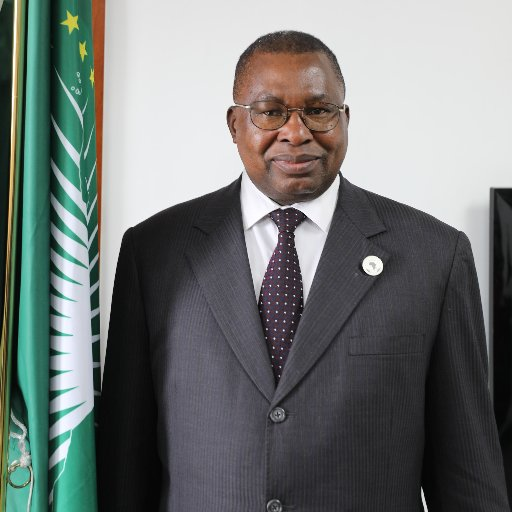For Africa to recover from the COVID-19-induced economic downturn, there is a need to embrace innovation and technology as low-hanging fruits for recovery, Ambassador Albert M. Muchanga, the African Union Commissioner for Trade and Industry has said.
The Commissioner made the remarks in his keynote address at the 2020 Africa-Korea business forum held under the theme, “Emerging Industries in the Post COVID-19 Era” at ongoing virtual Africa Industrialisation Week
The 2020 Commemoration of Africa’s Industrialization comes against the backdrop of the COVID19 pandemic. The onset of the COVID 19 has led to tremendous losses and a great slowdown in economic growth and development.
The World Bank forecasts a 5.2 percent contraction in global GDP in 2020 and 2.7 percent for Africa. Whilst the pandemic has not hit Africa in a manner that was earlier forecasted, Commissioner Muchanga said the continent has nevertheless suffered pressure. The health care systems are under stress, loss of revenues from tourism, dwindling remittances, subdued capital flows, and tight financial conditions amid mounting debts. All these have the potential of reversing past gains and deepening poverty through job losses and downsizing of production due to weak demand for goods and services.
He said the theme is timely because now, countries are focusing on resilience aiming at emerging stronger from the pandemic and exploring strategies on how to rapidly and sustainably recover. In this regard, the role of industrialization will be crucial.
Commissioner Muchanga said how ASfrica develops its industries, will have an effect on its recovery from this crisis. Thus, the pursuit of smart industrialization cannot be postponed any longer as it is key to the recovery that the continent seeks and desires to see.
Before the crisis, African countries were either implementing or designing national industrial policies. These pro-active industrial policies were aimed at expanding their policy space for industrialization, learning from the experiences of the countries that adopted similar policies earlier and are now in the league of industrialized countries.
He said the Republic of South Korea is one such country. This is why the African Union Commission values the partnership between Africa and Korea and believes that even during this uncertain period, this partnership will be crucial to the two partners.
“Thus far, the COVID 19 pandemic has revealed and reinforced two things that are relevant here. One is that the pandemic has highlighted the importance of technology. The second is that among the emerging industries, the common denominator is innovation and technology. A good example is a boom in the development of applications for telecommunicating as well as for the medical and healthcare industries. As I highlighted in my speech last year during a similar event, Africa has a lot to learn from Korea,” Commissioner Muchanga said.
The Executive Secretary of the UN Economic Commission for Africa, Dr. Vera Songwe said the continent must embrace sustainable industrialisation and diversification to find decent jobs for the 170 million African youth set to enter the jobs market between now and 2030.
She urged African countries to transition from commodities to value addition and economic diversification, including trade-able services, as well as embracing the rapidly evolving technologies in order to grow national incomes, or expand fiscal space.
“Thus, industrialization holds the key towards building socio-economic resilience, and self-reliance in Africa. The failure of most African countries to use the last commodity-based growth to start a more sustainable growth based on the development of the manufacturing sector (including but not exclusively the processing of primary commodities) is making the continent’s long-term prospect worrisome – no country, except a few states exceptionally rich in oil (e.g., Qatar, Kuwait, Brunei) or very small financial havens (e.g., Monaco, Liechtenstein), has achieved high and sustainable standards of living without developing a significant manufacturing sector,” Dr. Songwe said.






